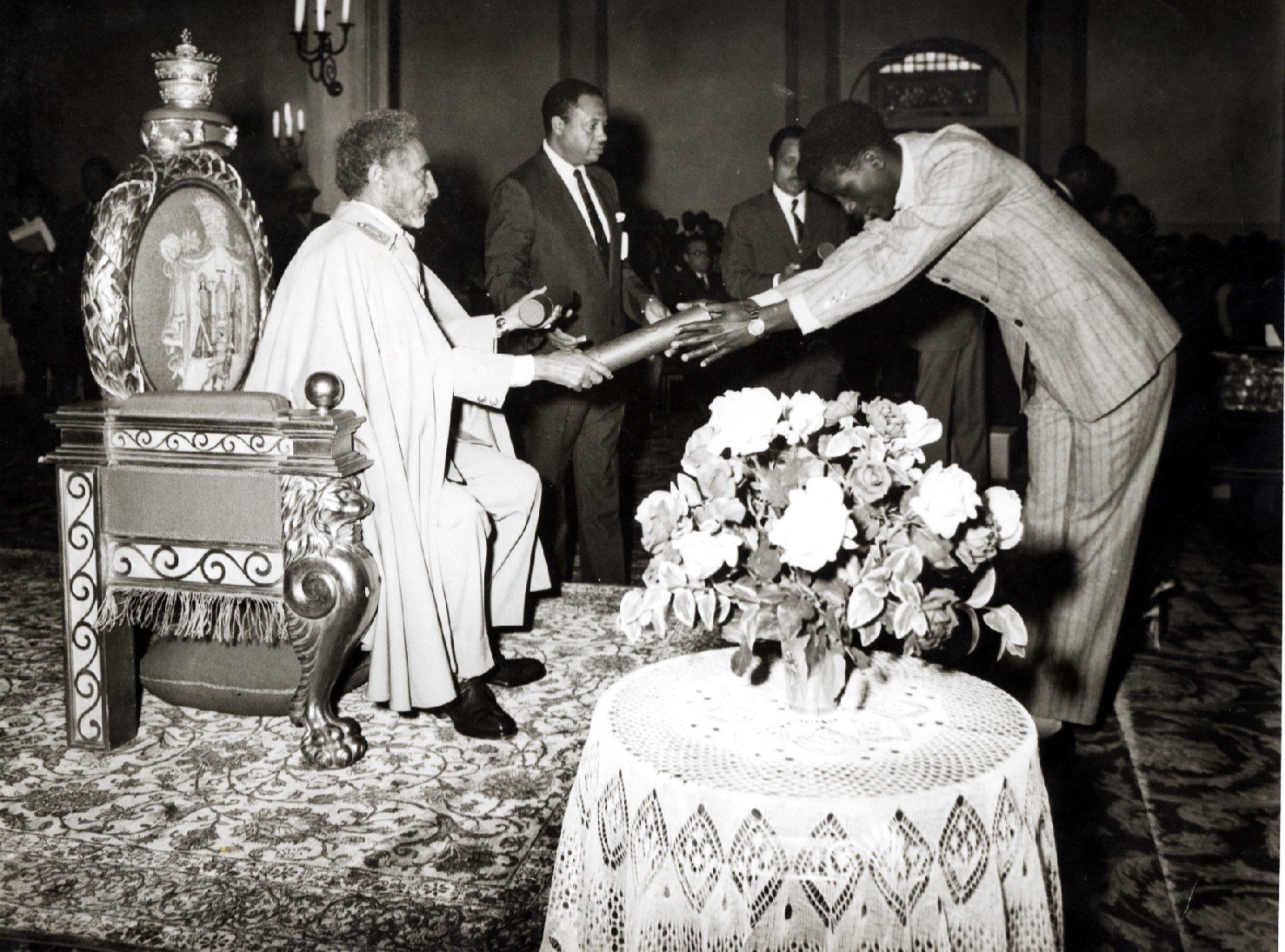
Our Parents’ Dreams, Deep Inside Our Names
I was born (so many years back) and raised in Ethiopia, one of the most poverty-stricken countries of Africa, where the nation was falling behind by almost all indicators.
As is the case for all newborn babies, my brothers and I received our names before or immediately after we were born. Our parents’ dreams — and those of the community around us — are deeply embodied and truly reflected in those names.
Tesfaye is my elder brother’s name. It translates in local language as, “our hope”
My younger brother’s name is Terefelign, meaning, “survived just for us.” My parents wanted to express their sadness following the death of his twin brother, but also show their aspiration for all that he will accomplish.
Alemayehu is my name. It is an expression for a wish, an aspiration, a hope to be able to get all the bests of the world — the wealthiest and happiest life made possible by me, their second son.
You may find it hard to imagine illiterate parents like mine, who worked hard to make ends meet on a day-by-day basis, sending all their children to school, bearing their costs, and closely following them up. For my parents, education stood out as the one and only avenue towards a bright future ahead and hence committed to do all they could to keep us going to school so that their dreams come true.
Pathways and transitions
I went to school, which my parents realized was a prominent pathway to the world of work. I successfully passed through grades 1 to 12 with the consistent support and follow-up of my parents and community. I passed the university entrance exam.
I made my parents proud. Imagine what it was like for them — neither could read or write — as they watched me receive my certificate from the hands of the late Emperor Haile Selassie of the nation, being one of the few to have that opportunity. Neighbours and friends came to my parents’ home to congratulate them.
However, I was not sure whether they felt their dreams were coming true.
I never understood the pathways for success where my current and next levels of education could take me, how to look for and find good work. But I did know that I wanted to fulfill the dreams my parents had for me.
In the absence of clear information and guidance about university education and what it takes to be successful, I took the courageous step of choosing one of the biggest colleges of the country, 500 km away from home: dealing with agriculture.
Apart from taking on highly technical courses, which all were great in leading us to gain our degrees, there was not much in the way of preparing us for the workplace in general. For example, we did not receive career development counseling, mentoring, or support for preparing us for the job market (what to focus on during the remaining academic years).
I didn’t know or care much about my post-university career and was unprepared for the workplace.
Now, it’s not my intent to complain about the non-supportive environment I faced in my transitions through multiple career trajectories. But my experience is that of hundreds of thousands of young Africans. We are not taught to think about how we should use our education to transition to work, the next stage of our lives.
I want to show the current generation the opportunities they have in their schooling system and all along their pathways for transitioning into a career.
What can we learn from my experiences?
Start by appreciating the fact that many of you are born and raised in much better learning environments, with better networks and platforms and, above all, in a non-stop surge of technological enablers! I encourage all young people to absorb all possible information and take advantage of available support to guide them into the next phase of their education and career. Seize all opportunities — look for a mentor, seek advice, volunteer, take internships to develop your future directions. Don’t let the moments pass you by!
African academic institutions can help by equipping students with critical life and leadership skills as part of their preparation to join the work force. They can also reduce transition time between school and work by facilitating communication and networking between job-seeking graduates and employers.
There were many incidents that forced me to think about the great debt I owe to my parents and my childhood community. I owe them my ambitions, for their full support and love. Despite the poverty, they protected me from taking the path to illiteracy and the life it entails for many.
Family, neighbors, communities and government gave me their support during my education. So, I take my part in helping parents, communities and the nation at large in their efforts toward alleviating poverty, fulfilling their ambitions and seeing the education system well connected with employers and job creators.
How about you? Have you made efforts to understand the communities you have originated from as well as living within? Thought of giving back?
To my friends reading this: you are the future of our great continent: I ask that each and every one of you live up to the names given to you by your parents. Fulfill their dreams.
Together, we can change the lives of others across Africa!



